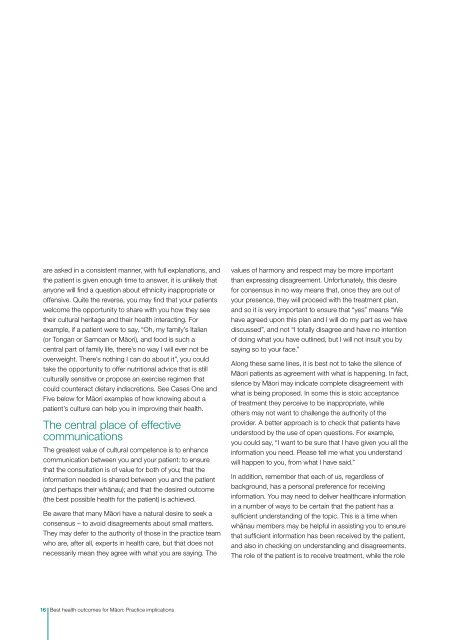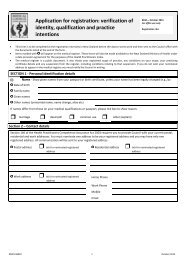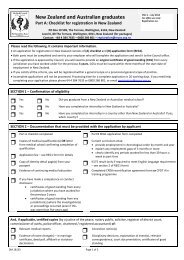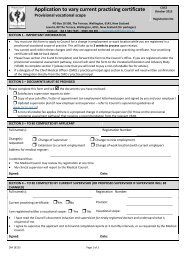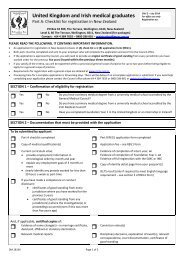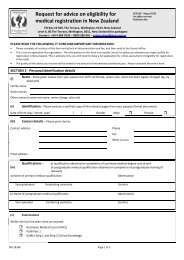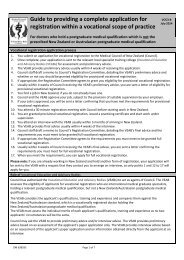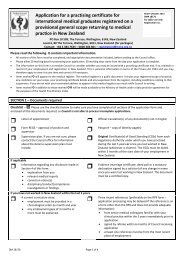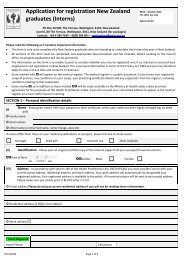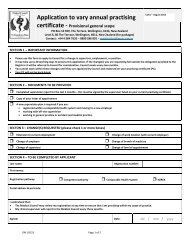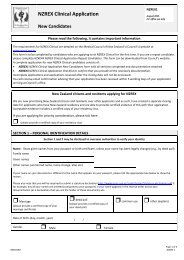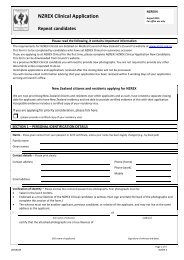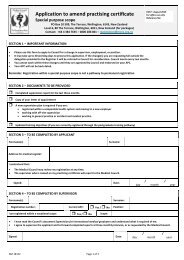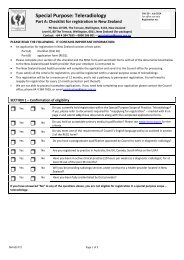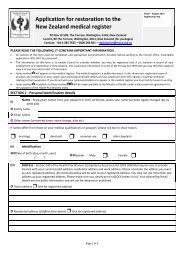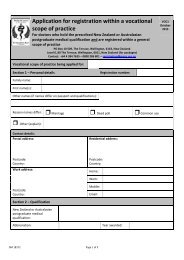Best health outcomes for Maori - Medical Council of New Zealand
Best health outcomes for Maori - Medical Council of New Zealand
Best health outcomes for Maori - Medical Council of New Zealand
You also want an ePaper? Increase the reach of your titles
YUMPU automatically turns print PDFs into web optimized ePapers that Google loves.
are asked in a consistent manner, with full explanations, and<br />
the patient is given enough time to answer, it is unlikely that<br />
anyone will find a question about ethnicity inappropriate or<br />
<strong>of</strong>fensive. Quite the reverse, you may find that your patients<br />
welcome the opportunity to share with you how they see<br />
their cultural heritage and their <strong>health</strong> interacting. For<br />
example, if a patient were to say, “Oh, my family’s Italian<br />
(or Tongan or Samoan or Mäori), and food is such a<br />
central part <strong>of</strong> family life, there’s no way I will ever not be<br />
overweight. There’s nothing I can do about it”, you could<br />
take the opportunity to <strong>of</strong>fer nutritional advice that is still<br />
culturally sensitive or propose an exercise regimen that<br />
could counteract dietary indiscretions. See Cases One and<br />
Five below <strong>for</strong> Mäori examples <strong>of</strong> how knowing about a<br />
patient’s culture can help you in improving their <strong>health</strong>.<br />
The central place <strong>of</strong> effective<br />
communications<br />
The greatest value <strong>of</strong> cultural competence is to enhance<br />
communication between you and your patient: to ensure<br />
that the consultation is <strong>of</strong> value <strong>for</strong> both <strong>of</strong> you; that the<br />
in<strong>for</strong>mation needed is shared between you and the patient<br />
(and perhaps their whänau); and that the desired outcome<br />
(the best possible <strong>health</strong> <strong>for</strong> the patient) is achieved.<br />
Be aware that many Mäori have a natural desire to seek a<br />
consensus – to avoid disagreements about small matters.<br />
They may defer to the authority <strong>of</strong> those in the practice team<br />
who are, after all, experts in <strong>health</strong> care, but that does not<br />
necessarily mean they agree with what you are saying. The<br />
<strong>Best</strong> <strong>health</strong> <strong>outcomes</strong> <strong>for</strong> Mäori: Practice implications<br />
values <strong>of</strong> harmony and respect may be more important<br />
than expressing disagreement. Un<strong>for</strong>tunately, this desire<br />
<strong>for</strong> consensus in no way means that, once they are out <strong>of</strong><br />
your presence, they will proceed with the treatment plan,<br />
and so it is very important to ensure that “yes” means “We<br />
have agreed upon this plan and I will do my part as we have<br />
discussed”, and not “I totally disagree and have no intention<br />
<strong>of</strong> doing what you have outlined, but I will not insult you by<br />
saying so to your face.”<br />
Along these same lines, it is best not to take the silence <strong>of</strong><br />
Mäori patients as agreement with what is happening. In fact,<br />
silence by Mäori may indicate complete disagreement with<br />
what is being proposed. In some this is stoic acceptance<br />
<strong>of</strong> treatment they perceive to be inappropriate, while<br />
others may not want to challenge the authority <strong>of</strong> the<br />
provider. A better approach is to check that patients have<br />
understood by the use <strong>of</strong> open questions. For example,<br />
you could say, “I want to be sure that I have given you all the<br />
in<strong>for</strong>mation you need. Please tell me what you understand<br />
will happen to you, from what I have said.”<br />
In addition, remember that each <strong>of</strong> us, regardless <strong>of</strong><br />
background, has a personal preference <strong>for</strong> receiving<br />
in<strong>for</strong>mation. You may need to deliver <strong>health</strong>care in<strong>for</strong>mation<br />
in a number <strong>of</strong> ways to be certain that the patient has a<br />
sufficient understanding <strong>of</strong> the topic. This is a time when<br />
whänau members may be helpful in assisting you to ensure<br />
that sufficient in<strong>for</strong>mation has been received by the patient,<br />
and also in checking on understanding and disagreements.<br />
The role <strong>of</strong> the patient is to receive treatment, while the role


